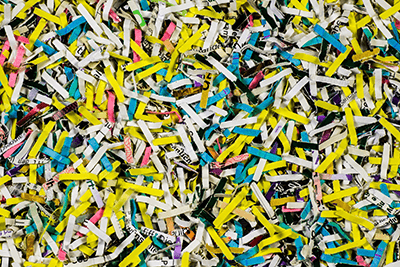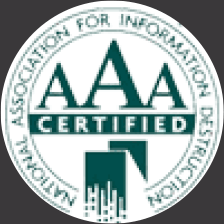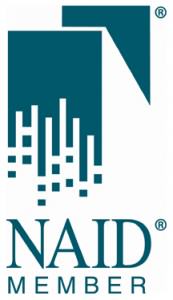
Identity theft is big business. We’re not joking. In 2019, $16.9 million was lost in the US as a result of fraud. That was despite a 0.6% drop in the number of customers affected. More thieves are now attacking the same group of people again and again.
Why is this important for you? Because if you choose not to shred junk mail, you could be next. You might be waving goodbye to your savings, assets, and insurance if you don’t protect yourself. These people will target you, your business, and even your children if you let them. But fear not, because we are not going to let them.
In this article, you will find out why you must shred your junk mail and which items you should destroy. You will also discover the additional benefits of shredding junk mail and if there are any safe documents you can dispose of without shredding.
What Should I Shred in Particular?
You should shred a lot more junk than you think. One example is used boarding passes from your business trips.
Thieves can use the QR code on your boarding pass to find out your travel plans, making you a possible target for pickpocketing or worse crimes when out-of-town. Criminals can also use the QR code to hack into your online account for a particular airline, change your details and steal any loyalty points and stored credit cards.
The personal privacy risks related to not shredding your boarding pass are also why you should never post pictures of these on social media. You should also shred old utility and tax bills. Even if you think they’re useless to anyone once you’ve paid them, criminals can use your personal information on them to access places where you keep your money.
The same goes for receipts, which still include parts of your credit card details. This is especially important if you’ve bought something with a business account, since a hack could affect your ability to pay your employees and partners.
Are There Any Documents I Can Get Away With Not Shredding?
Takeout menus can be safe not to shred, as long as they do not include your name and address. Newspapers you’ve bought from the store are also okay to throw away without shredding, as are old magazines. All other leaflets and neighborhood coupons without your name on can also be thrown away without shredding.
However, the problem with all of the above is that most of them are heavier items that take up a lot of space in landfill sites. And let’s be honest, taking them out is a chore.
You can save yourself time and energy by opting out of certain kinds of junk mail. The Federal Trade Commission has a page on its site with more details. You can choose to stop receiving these types of post either for five years or forever.
How Should I Store Documents That Might Be Important Later?
Some mail we consider to be junk will be useful to us later. Tax returns are an example of this, as are some transaction receipts. But you shouldn’t leave them lying around your home or office.
Documents that you might need later should be stored in a lockable location. One example is a safe, while you might also want to invest in a filing cabinet if you have a lot of paper to deal with. If you later no longer need these papers – for example, the necessary time has passed to keep hold of tax records – you should still shred them like you otherwise would. Even after decades, thieves can still use your name for identity theft.
You can alternatively choose to scan documents onto your computer and keep them stored in a secure cloud. In such instances, however, you need to think about the risks of a possible cyber attack.
What Are the Other Benefits of Shredding Junk Mail?
Shredding junk mail guarantees that even harmless-looking coupons won’t pose a data theft risk. Having a decluttered office will also lower your stress levels.
Since you will not be as tense each day, you’ll think more clearly and get extra work done. Which is great for your business, because that means more revenue.
Mail shredding is also good for the environment. 40% of timber chopped for commercial purposes globally is for paper, but you can use shredded paper as an ingredient in compost. And of course, it’s easier to carry to the recycling bin.
Is There a Difference in Mail Shredding Services?
NAID Certified shredding services offer an extra layer of protection when you choose to shred junk mail. All companies of this kind check to make sure their employees haven’t been involved in criminal activity while also making them sign non-disclosure agreements (NDAs).
You should also shred your papers with a NAID Certified business because they have officially met national standards for destroying data safely.
Verified companies also keep up with the requirements they first met since they are liable to random audit checks without prior warning.
As well as taking care when handling confidential data and stopping the wrong individuals from getting hold of them, NAID Certified shredders also make sure that electronic data is wiped after disposal.
Shred Unwanted Documents and Enjoy Peace of Mind
While throwing out a lot of junk mail may seem harmless, the reality can be the opposite if you aren’t careful. Thieves can use unshredded documents and receipts to access your personal information and steal your identity for their own interests. Shredding your junk mail also allows you to think clearer in a decluttered workspace and also do your bit to save the planet.
Fraud costs businesses, families, and hardworking individuals millions of dollars each year. Unshredded junk mail contributes to this. You can help beat this problem by thinking twice before you dump your paper without shredding it.
IntelliShred offers comprehensive shredding solutions throughout the tri-state area. To find out how we can help you safely destroy sensitive information, contact us.





